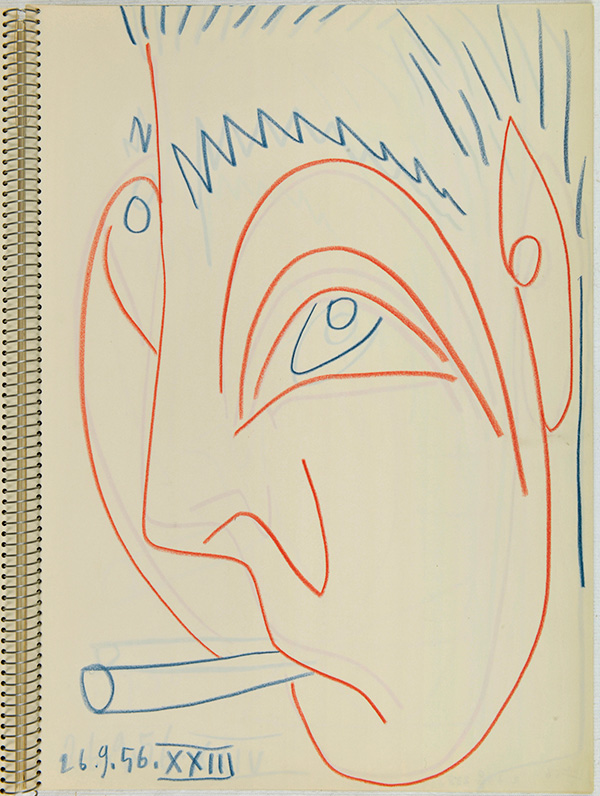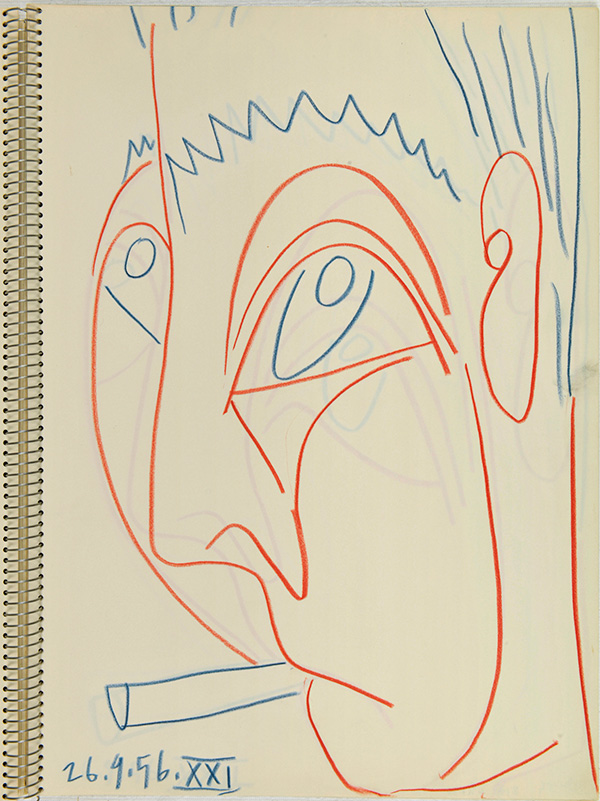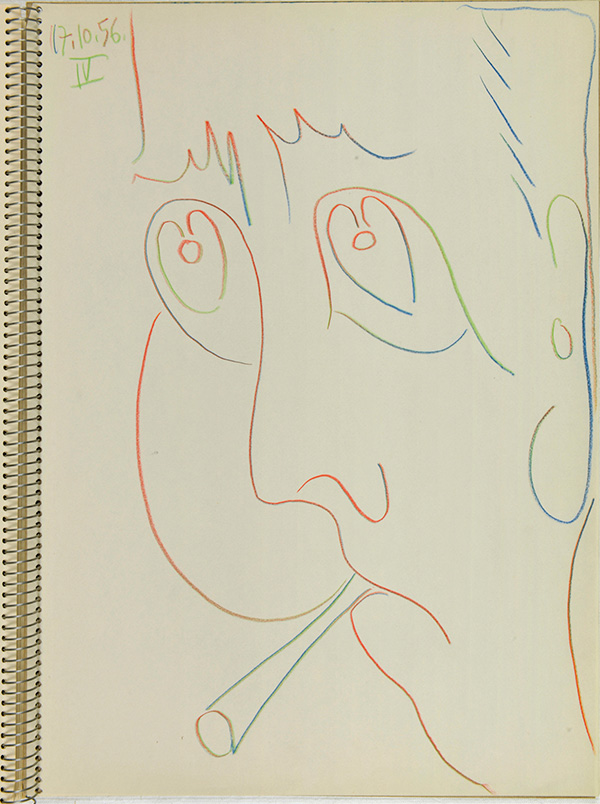André Verdet, the third man.
The sincere friendships he developed with numerous artists, painters, illustrators, and photographers also influenced his work as a whole. Prévert opened up without reservations and conveyed his feelings to Picasso. When the Musée Picasso in Antibes held an exhibition of his collages (Les Collages de Prévert, in 1963), Picasso designed the poster.
André Verdet (1913-2004) had known Jacques Prévert since 1941. He was deported for his involvement in the Resistance, and after his release, a long, creative friendship developed between the two of them. They collaborated on several poetry collections, including C’est à Saint-Paul-de-Vence, published in 1949. One evening in 1948, Prévert introduced him to Picasso, who had gone to dinner at the Colombe d’or. A wonderful affinity arose between Verdet and Picasso. In Antibes, in Vallauris, and in Saint-Paul, the poet spent many hours with the painter. For Verdet, Picasso was “that polymorphous, versatile daredevil, that multi-faceted sorcerer, the both cruel and generous inquisitor of history,” and also “the greatest form breaker of all times, the boldest of line slashers.”[1]
At times Prévert was amused by the painter’s behavior. “Nature has showered him with gifts, but he throws them all away, breaks them, and tramples on them like a child in a tantrum. Then he repairs them, brings them to life, examines them, and keeps the ones he likes, reconstructs a form of beauty, signs them, and lets them go.”[2] Once, when he was visiting the artist, Prévert noticed a pile of packages in a corner. One year later, on another visit, he saw that they were still there. The poet was surprised, and asked Picasso: “Aren’t you going to open them?” The artist answered, “No, I don’t know what’s inside.”
Jacques Prévert faithfully accompanied the artist in the key moments of his life. On October 25, 1961, he published a text titled “À tes vingt ans Pablo” (On your twentieth, Pablo) in a special issue of the Patriote de Nice honoring Picasso’s eightieth birthday:
“On your twentieth
Pablo on your twentieth before and now
You have a firm grip on the end of the rope of
Time
Every day is the birthday of your life
And your life unfolds heading straight to the green year[3] to the future within to the infinite past.”
[1] Entretiens, notes et écrits sur la peinture (Braque, Léger, Matisse, Picasso, Chagall), éditions Galilée, 1978.
[2] Jacques Prévert, op. cit.
[3] Translator’s Note: In the original play on words, l’an vert translates literally as “the green year,” but phonetically matches l’envers, “the opposite direction.”







 Summary
Summary